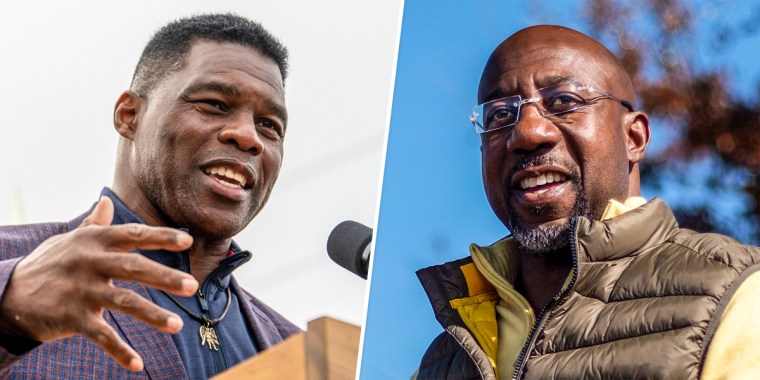Democratic Sen. Raphael Warnock appears to have benefitted from ticket splitting in November’s election, helping him be the top vote-getter in the Senate race.
But Tuesday's runoff will test what happens when the two men, Warnock and GOP nominee Herschel Walker, run head-to-head as the only game in town.
Georgia Republican Gov. Brian Kemp got about 200,000 more votes in his gubernatorial race than Walker did in his Senate race — 2,111,572 to Walker's 1,906,442.
By comparison, Warnock secured 1,946,117 votes to Democratic gubernatorial nominee Stacey Abrams’ 1,813,673. In fact, Warnock received more votes than Abrams in all but one county.
Overall, there were less than 20,000 more votes in the gubernatorial race than in the Senate race. So where did those extra Kemp voters go? A big chunk of them seemed to go to Warnock.
This year’s elections in Georgia were especially complicated for Republicans voting in the state’s top two statewide races. Kemp, who made a point of distancing himself from former President Donald Trump, won re-election comfortably, by nearly eight points. Walker, a Trump acolyte, fell short to Warnock by about 1 percentage point, but neither candidate got more than 50%, triggering the runoff.
Considering the internal tensions splitting the GOP, it seems highly likely that many of those 132,000 extra votes that Warnock won came from Kemp voters who crossed the aisle with their Senate votes — Kemp/Warnock voters.
The question now is what will those voters do on Tuesday? If they primarily turned out in November to back Kemp, do they bother coming out to solely vote for Warnock, a Democrat, in the runoff?
There could be real implications to those questions. Warnock only beat Walker by about 38,000 votes on November 8 — far less than the 132,000 votes generated by the likely Kemp/Warnock voters.
To be fair, none of this clear. The composition of runoff electorates is always difficult to predict as it’s hard to know who will show up.
And Walker’s critics have rightly noted that the gaffe-prone candidate may have a hard time bringing voters out just to support him on Tuesday. He likely benefitted from Republicans who came out to vote for Kemp and who reluctantly pull the lever for Walker.
But the numbers show that Warnock saw some benefits as well. If nothing else, Tuesday will offer a real test what a head-to-head Warnock-Walker race looks like.
